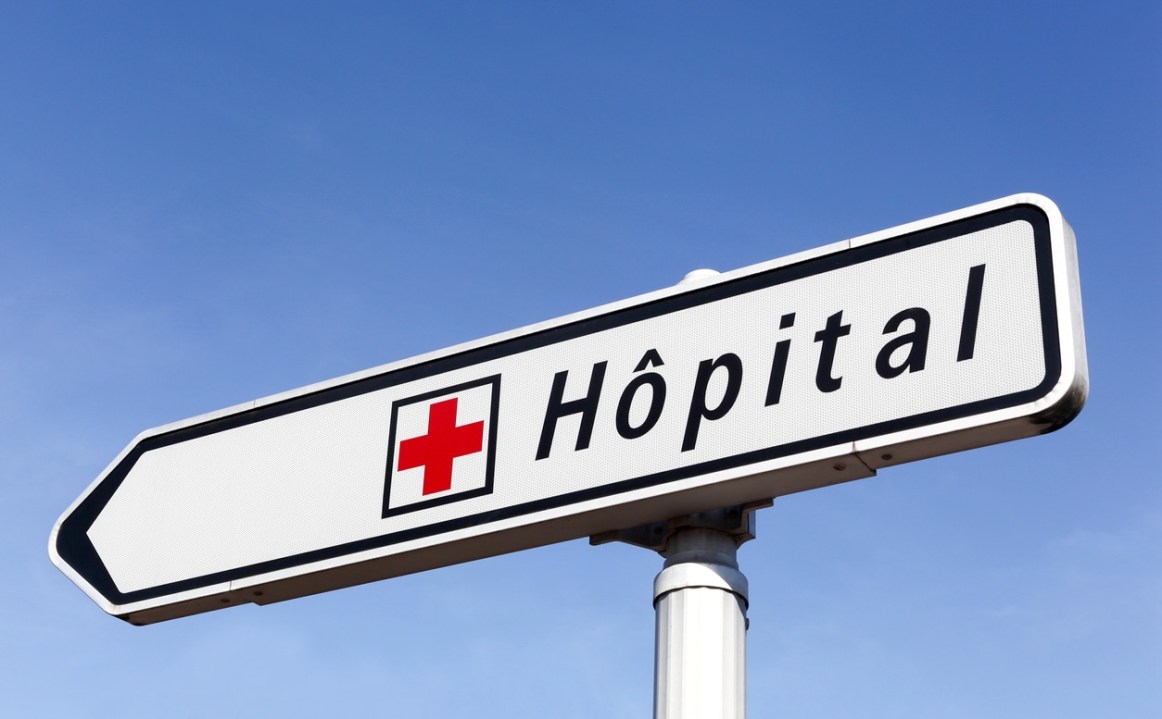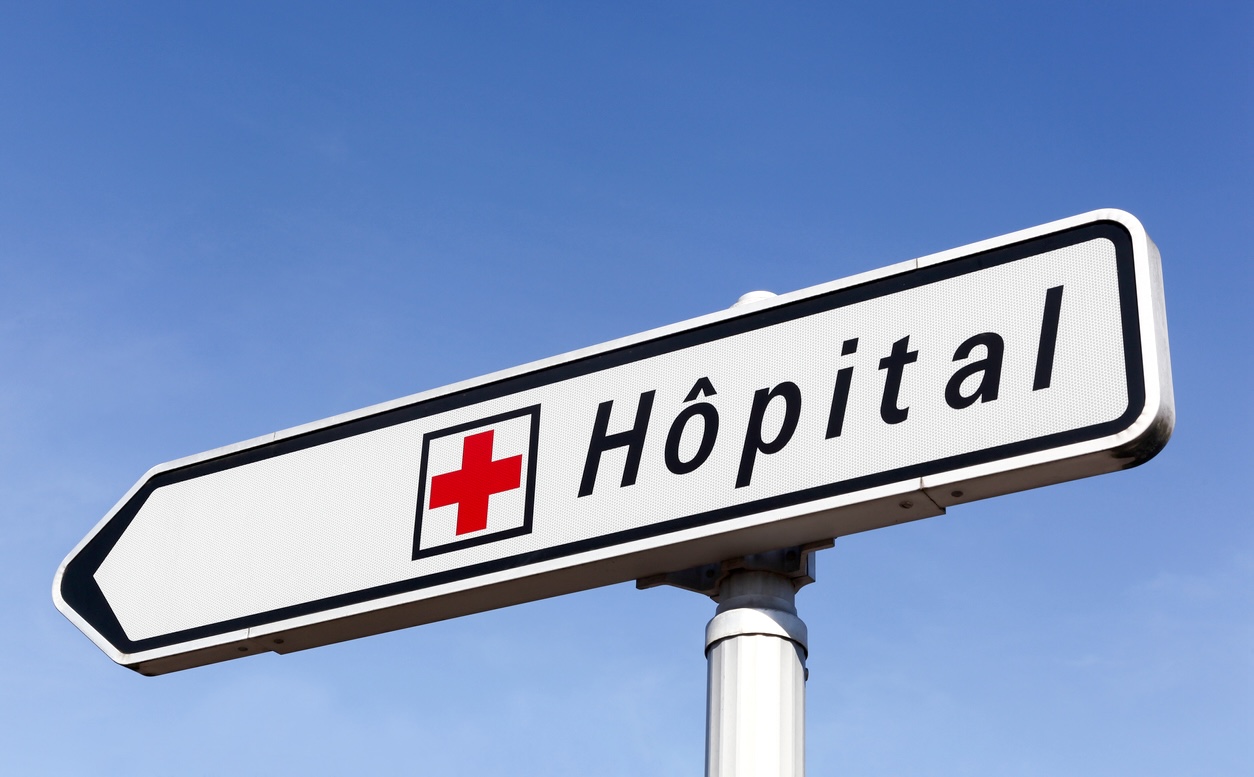Senior management was recently walking down the street and took a funny turn. With her habitual stoicism she ignored the swelling in her foot for two weeks until I finally persuaded her to go to the urgences (emergency room) at the local Polyclinique Pasteur, a mini-hospital in Pézenas, the town four miles from our village.
Nobody here seems to be waiting 84 hours in an emergency room, as one NHS patient recently did in Scotland
There wasn’t much they could do about the annoying bone in her foot, that was shown to be broken after a wait-free visit to the on-site radiology suite. But the diagnosis was rapid. The advice on what to do and not to do is proving effective. As encounters with the medical milieu go, I’d give it five stars. It took one hour from arrival to discharge and the co-pay bill (for Ibuprofen and paracetamol) was €2.
In London, going private, this would have cost at least £1,000. One shudders to imagine how the NHS would have handled this. Not everyone will be as lucky as I have been as an occasional user of medical services in France (my previous experience is here). French health care is not without problems, including a shortage of practitioners, acutely so in the medical desserts of some sparsely-populated French heartlands. There can be long waits sometimes at urgences, especially in big cities. An aging population means demand for health services is always growing.
But for all that some of my French medical friends cry doom and gloom, the country is also innovating with the model of private polyclinics and small hospitals covering basic procedures, solutions to the seemingly intractable difficulties of health care delivery. The established university and public hospitals are thus in competition with agile newcomers. Privatisation? Absolutely. Why wouldn’t this work in Britain?
The Labour shadow health minister Wes Streeting, who is promising to fix the NHS, and will likely get the chance, should come take a look. The Polyclinique Pasteur was founded by disruptive healthcare entrepreneur Lamine Gharbi, a Pézenas native with Tunisian roots. His company, Cap Santé, treated 120,000 patients last year in 18 clinics, including 70,000 patients in its four private emergency rooms. Perhaps some Cap Santés in the UK could help. There are some one-stop or multispecialty clinics in the UK operated by Bupa and Nuffield Health but they are entirely private and not integrated into the public medicine system as here.
Gharbi is neither a doctor nor even a venture capitalist but a pharmacist who has become dispenser of an entirely new and ultra-accessible health model, offering privatised services from emergency rooms to radiology to elderly care. Unfortunately he’s not planning to open a UK filial. His activities are all in the Occitantie region of southern France. Patients pay through the carte vitale social security system. The money follows the patient.
The secret sauce of the Pézenas polyclinic, and the others spreading through France, is that it’s a community not a referral hospital and is vastly smaller than the public and university hospitals which undertake the most difficult procedures. The polyclinic is not the place for open-heart surgery or oncology, but it does have everything most punters need, most of the time, under one roof. The building is clean. The admin is slick and computerised. The medical team of contracted doctors and nurses offers surgery, general medicine, an emergency suite and a 150-bed hospitalisation at home service with a team of itinerant infirmières who drive around visiting patients best not in hospital.
Our problem was minor so a good outcome wasn’t hard. A neighbour was in a horrible car accident and needed compex care for months. He also pronounced himself satisfied, but not everyone loves Cap Santé. And it’s true it’s a machine, trading access for angelic charm. A bit like Ryanair. Reviews on Google are mixed. Many agree with me, some do not. I imagine it’s hard to please everyone. But if nothing else, the Pézenas polyclinic, and others like it, prove that private provision can deliver services to tens of thousands of patients without being part of that Heath Robinson-like British contraption, the so-called National Health Service.
The group’s largest hospital is in a Montpellier suburb. It’s on a larger scale than the Pézenas mother ship and has 200 doctors and 200 paramédicaux including nurses and caregivers. A hotel team of 50 keeps everything clean, and there’s a ten-person restauration team keeping patients fed. Telemedicine consultations are available. Sharp not sloppy management is evident. Cap Santé employs no diversity, equity or inclusion officers.
Cap Santé must surely be a model for the future of health care. That private clinics like this are not allowed to provide health care to NHS patients has left Britain’s health service immune from real competition, with consequences that are obvious. Nobody here seems to be waiting 84 hours in an emergency room, as one NHS patient recently did in Scotland. You have a choice of where to be treated. And the doctors are not on strike.
France is doing other clever things, such as the Doctolib smart phone app allowing patients to book consultations online, without choosing their gender. More and more clinics have airport style check in. Insert the carte vitale and c’est parti. Meanwhile in England, striking junior doctors say they’re ‘defending’ the NHS.







Comments